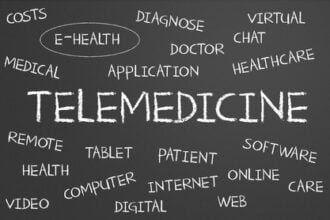 Competition in hospital and healthcare marketing—already a nightmare in many market areas—has a new player. And you probably didn’t see this one coming.
Competition in hospital and healthcare marketing—already a nightmare in many market areas—has a new player. And you probably didn’t see this one coming.
 Competition in hospital and healthcare marketing—already a nightmare in many market areas—has a new player. And you probably didn’t see this one coming.
Competition in hospital and healthcare marketing—already a nightmare in many market areas—has a new player. And you probably didn’t see this one coming.
Previously, we alerted readers to how big box retailers, CVS, Walgreens, and other health-related brands are repositioning themselves to carve out a larger and more active role in health care delivery.
Now—seemingly out of left field—the on-demand ride share outfit Uber launched an innovative, one-day pilot program under the banner of UberHEALTH. What’s a taxi service doing in the medical provider sector?
The core concept of delivering healthcare to the consumer is a modern-day mobile-enabled version of a medical house call…sort of. The one-day test provided on-demand flu shots in three major cities. Uber drivers (the transportation connection) would, upon request, bring a registered nurse (who administered the vaccine) to customers in New York, Boston or Washington, DC.
Here’s a bit of the backstory and what it might mean to healthcare marketing’s competitive landscape. It doesn’t look like a one-time publicity stunt.
Uber Technologies is a big and fast-growing outfit. Although a relatively young, privately-held company, this isn’t simply a smartphone app startup for ride-sharing. Surprisingly you can connect with Uber services in over 100 cities in the US as well as cities in 45 other countries. The Wall Street Journal pegs the company valuation at over $41 billion. This means Uber has the size to move into new territory if it wants.
Uber didn’t think this up in the back of a taxi. The concept—although only a pilot program—has genuine medical community connections. The flu-prevention-on-demand idea originated with Harvard Medical School’s HealthMap Vaccine Finder and Passport Health who partnered with Uber.
Probably not a one-trick-pony. We haven’t heard what’s next from UberHEALTH, but we’re likely to see more under the slogan on their blog: “Bringing House Calls Back.” There are more vaccines than flu shots that could be offered, that is if they stick to vaccines alone. In India, more comprehensive, cloud- and mobile-based preventive care packages are available for seniors as well as family health care packages.
Convenience is very appealing. Quickly grabbing a ride to the airport has proven to have consumer appeal, in spite of the fact that convenience has an extra cost. Attaching greater convenience to healthcare delivery could easily gain traction with select demographic groups.
Does on-demand healthcare have a future?
As Forbes reported, “The rise of smartphones, and online services that connect patients and providers, means that some health care services are increasingly going on demand.
“Uber framed Thursday’s flu shot initiative as ‘bringing the house call back,’ but that’s not quite right. Instead, it was more like just-in-time delivery to bring health care services to your smartphone.”
And virtually everyone has a smartphone, right? Stay tuned, healthcare marketing professionals. Check your smartphone for updates.







